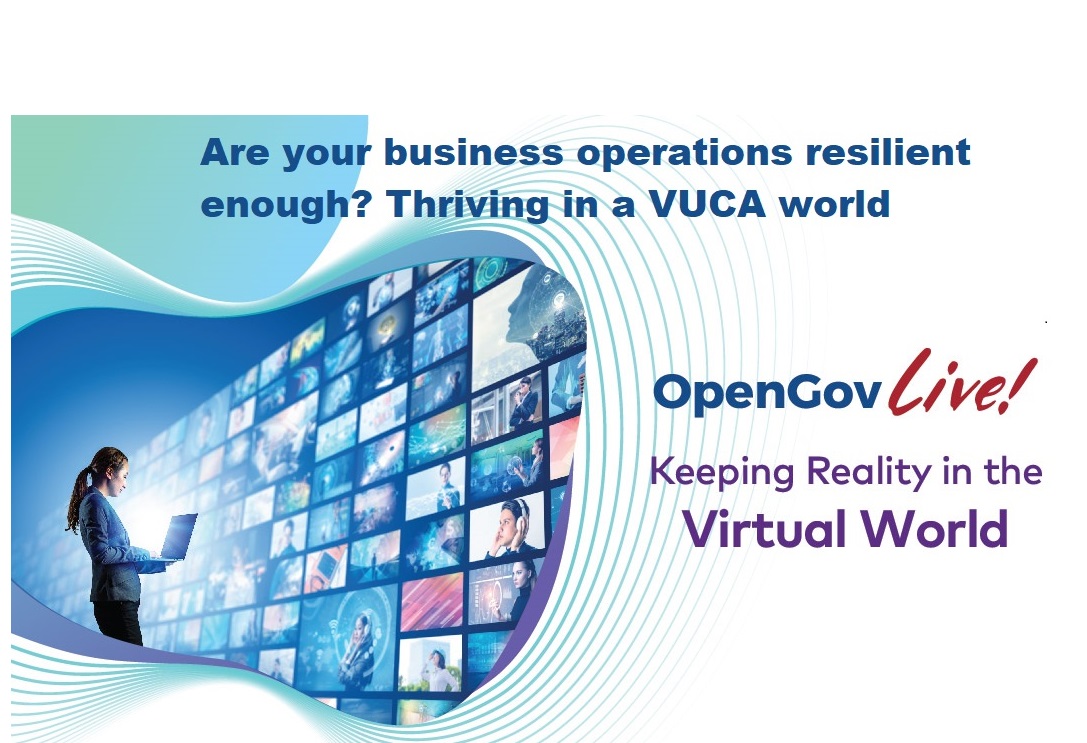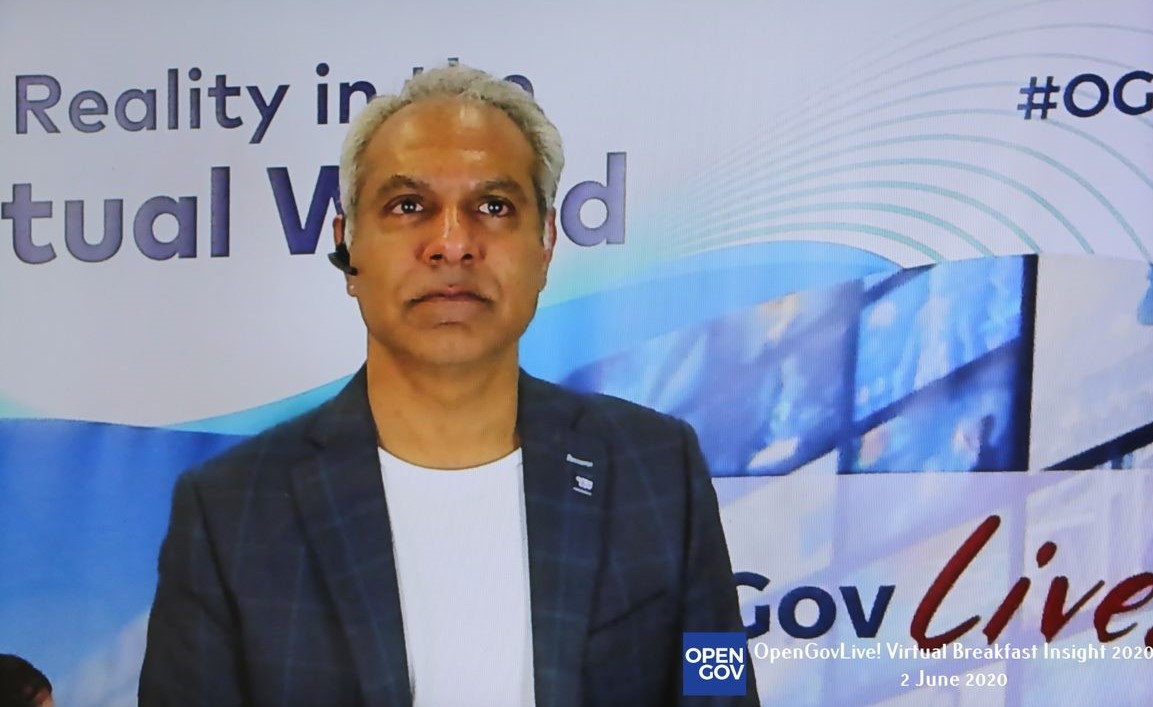
While the world was still resting from all the festivities, in late December 2019 it got taken by storm by something unexpected: a pandemic!
Most governments, organisations and people were caught off guard; while some governments and scientists had postulated large-scale epidemics, no one could believe that a virus could impact us on global scale.
But the last few months have taught us the importance of being prepared for critical events.
Critical Event Management (CEM) has now become the number one priority for governments and businesses today.
OpenGov Asia’s pursuit to inform and empower remains unchanged – especially in unprecedented times. Rising to the challenge and need of the hour, OpennGov has pivoted on the proverbial dime – taking our Breakfast Insights to a virtual interactive platform: OpenGovLive!
The OpenGovLive! inaugural session on 2nd June 2020 brought together representatives from 22 diverse organisations based across the region from Singapore and Australia to share and gain insights on the urgent priority – surviving and thriving in a VUCA environment.
The Virtual Breakfast Insight discussed planning, preparation and implementing business continuity strategies during the current (COVID 19) crisis and future critical events.

Mohit Sagar, Group Managing Director & Editor-in-Chief for OpenGov Asia, set the stage for the session, explaining how lives had turned upside down over the first few weeks of 2020 as the virus raged across the globe.
Businesses, governments and organisations all over the world were struggling to continue operations; even as hoarding toilet paper and basic supplies became the most important task of the day.
Organisations that were already prepared to deal with such a critical event or were quick enough to manage in real time, have come out as winners.
Mohit concluded by emphasising the importance of having an integrated business continuity plan to thrive in a VUCA world.

The session moved forward with valuable insights from Frederic Gillant, Vice President- APAC, Everbridge.
Everbridge specialises in providing critical event management solutions that help organisations through the full life cycle of a critical event.
Frederic touched on a range of topics underpinning critical events and their management. His presentation included a real-life example of how Everbridge manged the COVID-19 outbreak as it took participants through the pillars of CEM:
- Defining critical event and what all events can be classified as critical
- Process of Critical event management: Challenges, Solutions, stakeholders
- Ideal response mechanism: Assess, Locate, Act, Analyse
- Mitigation of consequences of Critical events
The session informed delegates about managing critical events and also helped them discover opportunities that can come out of them.

Ramesh Munamarty, Chief Information Officer from NTUC Singapore, shared his experience on how some industries have leveraged their strengths to create opportunities during these troubling times.
He spoke on use-cases that highlighted:
- The importance of Identifying opportunities amid the dangers of a crisis
- Specific industries that utilised opportunities during the crisis: Telecom &IT, Security, Supply chain, No touch technologies
- The journey of customers, operations, employees from pre-crisis to the future
After Closing remarks by Craig Howe, Sales Manager – Australia & New Zealand, Everbridge, the Virtual Breakfast Insight went into a time of polling.
Questions for the delegates and their real time response led to rich discussion on each one. Issues revolved around preparedness and abilities for managing critical events and how prepared were their organisations for the next critical event.
On the question of control over the current crisis in keeping employees safe and business running, there was a clear consensus. Over 72% of the delegates believed that their organisations were somewhat in control of the situation.
James, Chief Learning and Innovation Officer, shared that it was very hard to be absolutely sure in such a crisis as even when the things internally seem under control; there are far too many external factors, which cannot be controlled, but have a direct impact on the internal operations.
With regard to having a Business Continuity Plans (BCP) in place, almost half the room indicated that they had a BCP in place but was outdated and lacked integration.
Sachin shared that even though his organisation had a BCP in place on paper, there was a clear lack of integration when it came to actually doing things cross functionally.
About 60% of the delegates of the delegates were of the view that they had an integrated team from Operations, HR and Security while responding to the question of having the right people and resources to manage and to continue working during a critical event.
Ram, Vice President SME and Customer Experience, shared that in their organisation majority of their team were fully equipped to work from home. Only a very small part of employees had to go to branches too access production data.

As the virtual event continued, intense discussions and key insights from delegates on preparedness (or lack thereof) for the next critical event took centre stage.
Discussions touched upon a wide range of areas within critical event management including current situation, plans for the next critical event, IT capabilities, business culture etc.
Mitsu, Chief Financial Officer, shared that their business was able to overcome the perils of COVID -19 because they had presence in many different countries. Good internal communication allowed them to learn from the actions and reactions of government and agencies in one country and anticipate, adopt or adapt them in other countries.
Already able to predict how governments would react, their organisation started working with other governments (where they had presence) to help them understand the importance of keeping certain critical industries open.
She emphasised that an important motivation behind keeping their business and operations running was their social responsibility – to ensure the well-being of society in times of a critical event.
James shared how his organisation was quick to set up a mitigation committee to discuss the various focus points while dealing with the pandemic. Despite being prepared and experienced in dealing with the past critical events, the unpredictability and vastness of each future critical event leaves some loopholes and soft spots in laid-out plans.
Delegates gained rich insights on critical event management and its deep ramification for various aspects of an organisation and, indeed, society at large.
They dispersed better informed and better equipped about the processes, response mechanisms, mitigation of adverse consequences and creation of opportunities out of the dangers of a critical event.
















